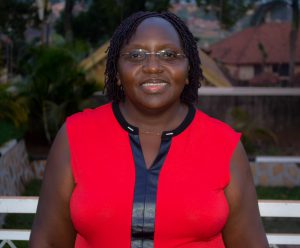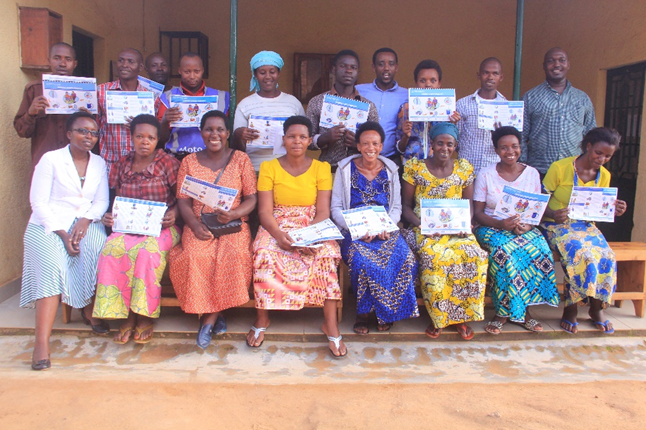It turned out better than they planned. Instead of quietly spreading nutrition messages from household to household, community advocates amplified their voices through megaphones to reach the masses gathered at markets in Rwanda.
“Gabura Amata Mubyeyi,” they said, which translated from Kinyarwanda means “Parents, Give Milk.”
The advocates also shared other messages targeted at pregnant and lactating women and their children. In the end, instead of reaching a few thousand people as planned, this project shared information with 10,950 people.
This change of course shows that research-for-development projects can apply principles of adaptive management. The project, Enhancing quality and consumption of milk for improved income and nutrition in Rwanda, was implemented between early 2017 to September 2020. Its final months coincided with the COVID-19 pandemic.
That crisis was not the only external force that encouraged the project’s team to adapt. In 2019, the Government of Rwanda, its National Early Childhood Development Program (now called National Child Development Agency), and USAID Rwanda Mission, recognized the project’s potential and wanted to expand its reach to ensure all participants received the important nutritional messaging. But this request conflicted with the project’s experimental trial that required a control group for comparison with a group receiving messaging (“Gabura Amata Mubyeyi”) on nutrition, particularly the importance of milk in the diet (using an approach known as a cluster-randomized longitudinal cohort study).
Finding a way forward in 2020, the project team created a delayed intervention, funded by USAID Rwanda Mission. They completed the original study and added an intervention period to ensure those in control households also received the important nutrition messages of Gabura Amata Mubyeyi.
Social and Behavior Change Communication
The original social experiment, called a social and behavior change communication intervention, intended to assess if information-sharing would increase the consumption of animal-source foods, namely milk, by mothers and their children. A sizeable team was assembled by Dr. Emily Ouma from the International Livestock Research Institute, the principal investigator of the project, and by primary collaborators from RTI International, University of Rwanda, and TechnoServe. The company Three Stones International supported implementation.

The study collected data in two regions from 652 households representing three groups: the control group, those with a cow from the government’s Girinka (“One cow per poor family” ) program, and those in the Girinka program who also received the nutrition messaging intervention focused on milk consumption. All households were required to have a child who was 12 to 29 months of age.
To reach the large number of households targeted, community health workers from the government were trained and supplied with counseling cards and other materials about nutrition. They conducted community events and household visits from February through September 2019. This data was compared to baseline data collected in 2018. In addition, a master’s student in gender studies at the University of Rwanda, Agnes Uwera, interviewed 60 people to collect qualitative endline data from July to August 2020.
What did the study find? The data showed that children in Girinka households consumed milk more often than those without a Girinka cow, but many children in Girinka households still did not consume milk daily. For Girinka households, the social and behavior change communication intervention on nutrition messaging increased mothers’ knowledge and children’s frequency of weekly milk intake.
Two More Components
In addition to this communication intervention, the research project conducted two other projects on capacity development of dairy cooperatives and on the supply of high-quality milk. It documented gains in performance of the dairy cooperatives and found that consumers were willing to pay price premiums for pasteurized milk.
The project gained valuable experience through the addition of the “light touch” delayed intervention, and it has recommended scaling it up to other districts in Rwanda. Moreover, Dr. Ouma was funded by our Innovation Lab to conduct a follow-on project from 2020 to 2021 called Engaging men in supporting maternal and child consumption of milk and other animal source foods in Rwanda.

 1
1
